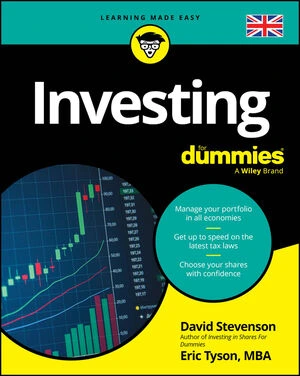Cash accounts
The traditional brokerage account is a cash account, which also is known as a Type 1 account. With a cash account, you must deposit the full cost of any purchases by the settlement date of the transaction. At many brokerage houses prior to 2002, you were permitted to place an order to buy stock even if the cash was not yet in your account.Today, however, few brokers give you that kind of flexibility. Most brokers require funds to buy stocks to be in your cash account before you can place an order. The amount of cash you need to have on deposit varies by broker.
Margin accounts
You don’t have to have as much cash on hand to buy stock when you open a margin account. This type of account enables you to borrow certain amounts of money using cash or securities already in the account as collateral. Each respective brokerage firm has its own screening procedure to determine whether you can buy on margin.The Federal Reserve requires a $2,000 minimum deposit to open a margin account, and it currently limits the amount you can borrow on margin to 50 percent of the initial purchase price. Not all stocks can be bought on margin. When buying stocks on margin, you pay an interest rate on the margin loans, but most brokerage firms charge relatively low rates to encourage the transaction business.
When opening a margin account, the firm also requires you to sign what’s called a hypothecation agreement, which stipulates regulations for the account and permits the broker to have a lien on your account whenever the balance in your account falls below the minimum maintenance margin. The agreement also enables your broker to loan your shares to short sellers. That’s where shorted stock comes from.
You’re taking a risk by purchasing shares of stock with borrowed money and using shares you own as collateral. If your stock holdings fall in value below the minimum maintenance margin requirement, your broker can force you to sell stock you don’t want to sell and use other assets you may not want to use to cover the outstanding loan.
Options
If you want to trade options, your broker will require you to sign a special options agreement acknowledging that you understand the risks associated with trading options or derivative instruments. This practice became common after brokers were sued by some clients because they suffered huge losses when trading options and claimed they were unaware of the risks. This protects the broker from a lawsuit.IRAs and other retirement accounts
IRAs and other accounts in which you’re saving for retirement sometimes allow you to trade options, but margin trading is not allowed at all. These limitations are for your protection to avoid risking major losses in your long-term investments that never should be put at such high levels of risk. The amount you can contribute each year to all retirement accounts is limited by the Internal Revenue Code.Although you may be able to find a brokerage firm that allows you to trade using options — puts and calls, which are a type of option — you nevertheless risk penalties for certain trading activities that occur in your retirement account whenever the IRS determines the account is being used for trading purposes rather than long-term investing.
Officially, the Internal Revenue Code prohibits the “IRA or Keogh Plan account holder from loaning money to the account. Likewise, the holder cannot guarantee borrowing by the account or cover its losses.” That’s why margin accounts, which entail a type of borrowing, are not allowed.
Because these accounts are either tax-free or tax-deferred, you can’t write off any losses in them against any gains from investments held outside of them in other taxable accounts. You don’t have the same tax-planning choices with IRAs or retirement accounts to offset gains and losses. All money taken out of an IRA at retirement is taxed at your current income tax rate.For these stocks, you can use stock losses to minimize the tax you might have to pay on stock gains. If you hold the stock for longer than a year, you are taxed based on the lower capital gains rate of 15 percent for most taxpayers rather than your higher current income tax rate, which can be as high as 35 percent for some taxpayers.
Here are some additional trading limitations of retirement accounts:
-
Margin is not allowed: Using funds within a retirement account as collateral for trading on margin isn’t permitted. It’s against the law. You won’t find a broker that will permit you to place retirement funds in margin accounts.
-
Short positions are prohibited: Speculative trading using short positions requires a margin account. When someone shorts a stock, he or she borrows the stock and sells it in the hope of buying it back later for less. Selling short requires the use of margin and is therefore not permitted in a retirement account.
-
Trading policies are more stringent: All brokers have more stringent trading policies for retirement accounts. Before you open a retirement account, check with your broker about their trading limitations to be sure they match your intentions for the account.
-
Options trading may not be permitted: If you’re an experienced trader, you can find some brokerage firms that allow options trading in your retirement account. Not all types of options, however, can be traded in a retirement account. The ones that you most likely can trade are covered calls, long call and put positions, or cash-secured puts.






